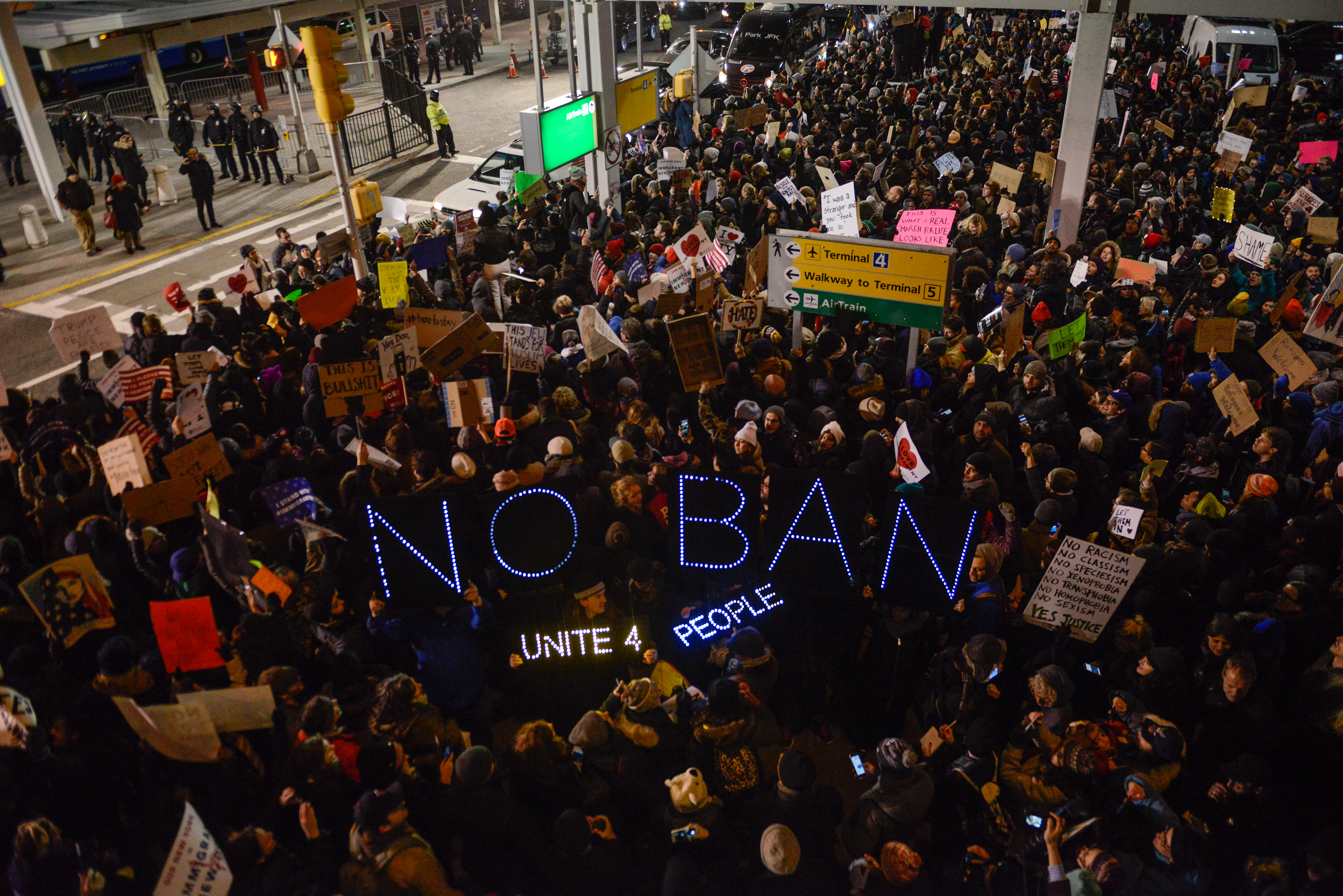Less than two weeks after the Trump Administration asked the Supreme Court to reverse the stay that prevents it from implementing a “Muslim travel ban,” another appeals court has upheld the block.
The administration seeks to prevent travelers from six predominantly Muslim countries from entering the United States and halt refugee admission for 120 days. The executive orders issuing the “Muslim ban” were immediately challenged in court and the ban was halted. Federal lawyers subsequently appealed those decisions.
The United States Court of Appeals for the Ninth Circuit issued a ruling on State of Hawaii, et al. v. Trump today (June 12). The ruling comes on the heels of a similar ruling from the United States Court of Appeals for the Fourth Circuit in May. The administration appealed that ruling to the Supreme Court.
Today’s ruling says that President Donald Trump overreached his power when he issued the order, and that it is discriminatory. From the ruling:
The Immigration and Nationality Act (INA) gives the president broad powers to control the entry of aliens, and to take actions to protect the American public. But immigration, even for the president, is not a one-person show. The president’s authority is subject to certain statutory and constitutional restraints. We conclude that the president, in issuing the executive order, exceeded the scope of the authority delegated to him by Congress. In suspending the entry of more than 180 million nationals from six countries, suspending the entry of all refugees, and reducing the cap on the admission of refugees from 110,000 to 50,000 for the 2017 fiscal year, the president did not meet the essential precondition to exercising his delegated authority: The president must make a sufficient finding that the entry of these classes of people would be “detrimental to the interests of the United States.” Further, the order runs afoul of other provisions of the INA that prohibit nationality-based discrimination and require the president to follow a specific process when setting the annual cap on the admission of refugees. On these statutory bases, we affirm in large part the district court’s order preliminarily enjoining sections 2 and 6 of the executive order.
While it upheld the stay on the travel ban, the court did vacate the lower court’s decision to prevent the federal government from conducting internal reviews and said that it was improper to “enjoin the president without necessity.”
University of Texas School of Law professor Steve Vladeck told CNN that this change actually boosts the validity of the stay: “By holding that the district court was wrong to block the executive order’s internal review procedures, the court of appeals allowed that review to go forward—and, in the process, took away one of the arguments the government had been making in the Supreme Court for why the Hawaii order should be overturned.”
Read today’s decision here.
